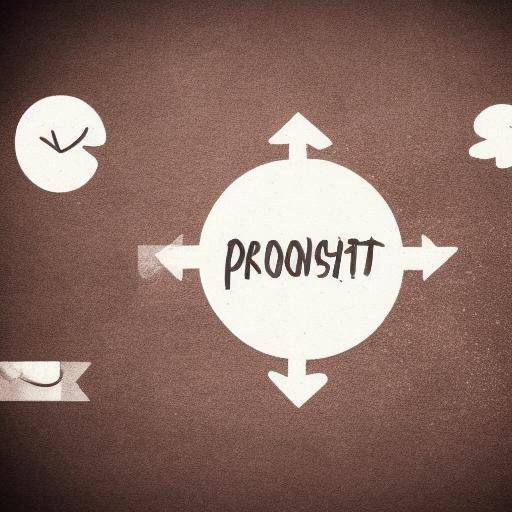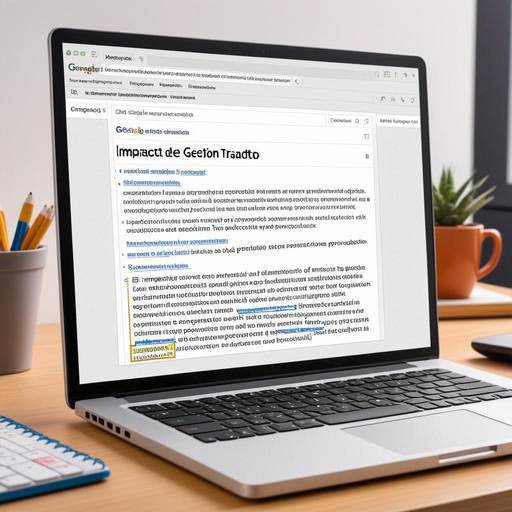
Introduction
Have you ever wondered if there is a more effective way to manage your time at work or in your studies? The Pomodoro method is a time management technique that has acquired popularity in recent years. However, for the maximum benefit of this technique, it is crucial to understand the importance of prior planning. In this article we will explore in detail the concept of prior planning in the context of the Pomodoro method and how it influences the organization of work and productivity. You will learn strategies for efficient planning, the benefits it brings to your productivity and how to apply it in your daily life.
History and background
The Pomodoro method, developed by Francesco Cirillo in the 1980s, is based on the idea of dividing the work in time intervals, usually of 25 minutes, followed by short breaks. The technique takes its name from the popular kitchen "pomodoro" (tomato), as Cirillo used a cooking timer in the form of tomato to develop the method.
By implementing the Pomodoro technique, prior planning becomes even more relevant. This approach not only increases productivity, but also improves time management and reduces stress. Meticulous preparation before starting a task can make the difference in efficiency and final result.
In-depth analysis
By dedicating time to previous planning, a clear structure and approach are forged before starting a task. This process allows to identify specific objectives, define priority tasks and determine the time required for each activity. Pre-planning also helps to reduce disruptions and distractions, which in turn increases concentration and efficiency at work.
A study conducted by the University of California Irvine showed that disruptions in daily work can generate high levels of stress and decrease labor satisfaction. However, prior planning can counter these negative effects by providing a structured framework for managing tasks more efficiently.
Comprehensive review
Pre-planning is a fundamental tool for optimizing the Pomodoro method and improving working efficiency. In future planning the parameters of each activity are set, uncertainty is reduced and procrastination is conquered. In addition, prior planning facilitates the identification of potential obstacles, enabling them to proactively address them.
Comparatively, the lack of prior planning can lead to a chaotic and inefficient approach to time management. The benefits of prior planning are not only reflected in the implementation of tasks, but also in the quality of work.
Comparative analysis
Pre-planning is directly related to the organization of work and productivity. These three elements form a synergistic cycle where proper planning facilitates the organization of work and, in turn, leads to greater productivity. Pre-planning provides the framework for efficient task structure, ensuring proper execution and maximizing results.
Accessible practical advice and advice
For effective prior planning, it is essential to establish clear and attainable objectives. The breakdown of complex tasks in smaller steps helps to visualize and address each component more manageably. Establishing realistic timelines and prioritizing key tasks are key practices for successful prior planning.
Vision of Industry and Opinions of Experts
Time and productivity management experts agree that prior planning is an essential component for the success of the Pomodoro method. By having a clear plan, individuals can stay focused, reduce downtime and increase overall productivity.
Some specialists also suggest the regular review and adjustment of the plan, which allows adaptation to the changes and challenges in the way. Flexibility and adaptability are key aspects to maintaining the effectiveness of previous planning.
Case Studies and Real Life Applications
An example of successful execution of previous planning in the Pomodoro method is shown in the workplace. A software development team implemented this method together with prior planning before each working cycle. The results showed a significant reduction in delivery times and an improvement in the quality of the final product.
Future trends and predictions
As labour culture evolves into more flexible environments, previous planning becomes even more crucial. Predictions indicate that prior planning will be a key aspect in time management and productivity as more people adopt remote or flexible working methods.
Conclusion
In conclusion, prior planning plays a vital role in the success of the Pomodoro method, providing organization, approach and efficiency to daily activities. By integrating pre-planning as a standard practice, a robust framework is established to improve productivity and achieve optimal results. Pre-planning, as the central axis of the Pomodoro method, directly influences the organization of work and allows for higher efficiency levels.
Frequently asked questions
What is the difference between prior planning and time management?
Time management focuses on assigning limited resources efficiently to complete tasks, while pre-planning focuses on structuring and organizing activities before they are undertaken.
Can pre-planning be applied to any type of work?
Yes, previous planning is an adaptable and beneficial practice for any kind of work, whether creative, technical, academic or administrative.
How can I improve my prior planning capacity?
Regular practice and reflection on results are key to improving pre-planning skills. It is also useful to gather information from colleagues or mentors.
What is the impact of previous planning on reducing labour stress?
Pre-planning reduces surprises and uncertainties, which in turn decreases anxiety and stress related to work.
Does previous planning prevent flexibility in the implementation of tasks?
Although prior planning establishes a structure, it also allows adjustments as necessary to adapt to new circumstances or discoveries.
Is there a recommended time limit for prior planning before starting a task?
There is no strict limit, but it is recommended to devote at least 10-15% of the total estimated time for the task to previous planning.
As the previous planning continues to gain recognition as an essential component for the success of the Pomodoro method, its value extends beyond the workplace to improve the quality of life in general. Incorporating previous planning into your daily activities can make the difference between a stressful day and a highly productive one. Start today to integrate previous planning into your routine and see how to transform your focus and results!






















































